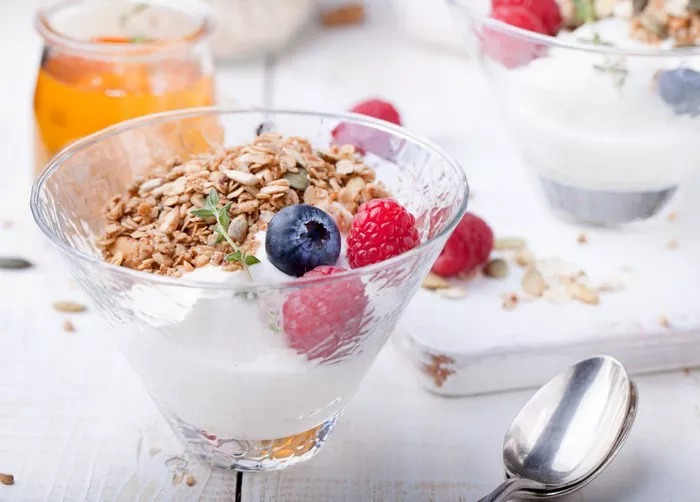Maintaining optimal blood sugar levels is crucial for individuals with diabetes or those at risk of developing the condition. High blood sugar, or hyperglycemia, can lead to serious complications if not managed properly. Diet plays a pivotal role in controlling blood glucose levels, and making informed food choices is essential. This comprehensive guide will explore the best foods to manage high blood sugar, detailing their benefits, nutritional content, and how they can be incorporated into a daily diet.
Understanding High Blood Sugar and Its Implications
High blood sugar occurs when the body cannot effectively use or produce insulin, the hormone responsible for regulating blood glucose levels. Chronic hyperglycemia can lead to complications such as cardiovascular disease, nerve damage, kidney failure, and vision problems. Therefore, managing blood sugar through diet, exercise, and medication (when necessary) is vital for long-term health.
Principles of a Diabetes-Friendly Diet
A diet that helps manage high blood sugar typically focuses on the following principles:
1. Low Glycemic Index (GI) Foods: These foods cause a slower and lower rise in blood glucose levels.
2. High Fiber: Fiber helps slow the absorption of sugar and improves blood sugar levels.
3. Healthy Fats: Including unsaturated fats can help improve insulin sensitivity.
4. Moderate Protein: Lean proteins can help manage blood sugar levels without causing spikes.
5. Controlled Portions: Monitoring portion sizes to avoid excessive calorie intake.
Low Glycemic Index Foods
Whole Grains
Whole grains have a lower glycemic index compared to refined grains and provide sustained energy without causing blood sugar spikes. Examples include:
- Oats: Rich in soluble fiber, oats can help improve insulin sensitivity.
- Quinoa: A complete protein, quinoa is also high in fiber and nutrients.
- Barley: Contains beta-glucan, which can help regulate blood sugar levels.
Legumes
Legumes are an excellent source of plant-based protein and fiber, both of which contribute to stable blood sugar levels. Examples include:
- Lentils: High in protein, fiber, and complex carbohydrates.
- Chickpeas: Provide protein, fiber, and essential vitamins and minerals.
- Black Beans: Rich in antioxidants, fiber, and protein.
High Fiber Foods
Vegetables
Non-starchy vegetables are low in calories and carbohydrates but high in vitamins, minerals, and fiber. Examples include:
- Leafy Greens: Spinach, kale, and Swiss chard are nutrient-dense and low in carbohydrates.
- Broccoli: Contains sulforaphane, which may help improve insulin resistance.
- Bell Peppers: High in vitamins A and C, and fiber.
Fruits
While fruits contain natural sugars, those with a low glycemic index and high fiber content are beneficial for blood sugar management. Examples include:
- Berries: Blueberries, strawberries, and raspberries are high in fiber and antioxidants.
- Apples: Contain fiber and polyphenols that can help regulate blood sugar.
- Pears: High in fiber and low in calories.
Healthy Fats
Nuts and Seeds
Rich in unsaturated fats, protein, and fiber, nuts and seeds can help improve blood sugar control. Examples include:
- Almonds: Provide healthy fats, protein, and magnesium.
- Walnuts: High in omega-3 fatty acids and antioxidants.
- Chia Seeds: Contain omega-3 fatty acids, fiber, and protein.
Avocado
Avocados are rich in monounsaturated fats, which can help improve insulin sensitivity and lower blood sugar levels.
Moderate Protein
Lean Meats and Fish
Including lean sources of protein can help manage blood sugar without excessive fat intake. Examples include:
- Chicken Breast: High in protein and low in fat.
- Turkey: A lean protein source that helps regulate blood sugar.
- Fatty Fish: Salmon, mackerel, and sardines are high in omega-3 fatty acids, which can reduce inflammation and improve insulin sensitivity.
Controlled Portions
Managing portion sizes is critical to avoid excessive calorie intake, which can lead to weight gain and further complicate blood sugar control. Tools like measuring cups, food scales, and visual aids can help maintain appropriate portion sizes.
Creating a Balanced Meal Plan
A well-balanced meal plan should include a variety of foods from different food groups to ensure adequate nutrient intake. Here’s how to structure a meal plan that helps manage high blood sugar:
Breakfast
- Oatmeal with Berries and Nuts: Start your day with a bowl of oatmeal topped with fresh berries and a sprinkle of nuts for added protein and healthy fats.
- Vegetable Omelet: An omelet made with spinach, tomatoes, and bell peppers, served with a slice of whole-grain toast.
Lunch
- Quinoa Salad: A hearty salad with quinoa, chickpeas, avocado, and mixed greens, dressed with olive oil and lemon juice.
- Turkey and Veggie Wrap: A whole-grain wrap filled with lean turkey, lettuce, cucumbers, and hummus.
Dinner
- Grilled Salmon with Broccoli: A serving of grilled salmon paired with steamed broccoli and a side of brown rice.
- Stir-Fried Tofu and Vegetables: Tofu stir-fried with an assortment of colorful vegetables like bell peppers, broccoli, and carrots, served over a bed of cauliflower rice.
Snacks
- Greek Yogurt with Nuts: A bowl of unsweetened Greek yogurt topped with a handful of walnuts.
- Apple Slices with Almond Butter: Sliced apples served with a spoonful of almond butter for a satisfying and balanced snack.
Hydration and Its Role in Blood Sugar Management
Staying hydrated is crucial for overall health and blood sugar management. Water is the best choice, but other options include:
- Herbal Teas: Unsweetened herbal teas can provide hydration and additional health benefits.
- Infused Water: Adding slices of lemon, cucumber, or berries to water can enhance flavor without adding sugar.
Supplements and Spices
Certain supplements and spices have been shown to help manage blood sugar levels. While they should not replace medication, they can be beneficial when used alongside a healthy diet.
Cinnamon
Cinnamon has been shown to improve insulin sensitivity and lower blood sugar levels. Incorporating cinnamon into your diet can be as simple as sprinkling it on oatmeal or adding it to smoothies.
Chromium
Chromium is a mineral that plays a role in carbohydrate and lipid metabolism. Some studies suggest that chromium supplements can help improve blood sugar control, but it’s important to consult a healthcare provider before starting any new supplement.
Turmeric
Curcumin, the active ingredient in turmeric, has anti-inflammatory and antioxidant properties that can benefit blood sugar management. Adding turmeric to dishes like curries, soups, and smoothies can enhance both flavor and health benefits.
Lifestyle Factors and Their Impact on Blood Sugar
In addition to diet, other lifestyle factors play a crucial role in managing blood sugar levels:
Regular Exercise
Physical activity helps improve insulin sensitivity and lower blood sugar levels. Aim for at least 150 minutes of moderate-intensity exercise per week, such as brisk walking, cycling, or swimming.
Stress Management
Chronic stress can negatively impact blood sugar levels. Practices like yoga, meditation, and deep-breathing exercises can help manage stress and improve overall well-being.
Adequate Sleep
Poor sleep can affect blood sugar regulation. Aim for 7-9 hours of quality sleep per night to support overall health and blood sugar control.
Monitoring Blood Sugar Levels
Regular monitoring of blood sugar levels is essential for understanding how different foods and activities affect your blood glucose. Use a blood glucose meter to check your levels as advised by your healthcare provider, and keep a log to track patterns and make informed adjustments to your diet and lifestyle.
Conclusion
Managing high blood sugar is a multifaceted approach that involves making informed food choices, maintaining an active lifestyle, and monitoring blood glucose levels regularly. By incorporating low glycemic index foods, high-fiber vegetables and fruits, healthy fats, and lean proteins into your diet, you can effectively control blood sugar levels and reduce the risk of complications. Remember, portion control and hydration are equally important in maintaining overall health. Always consult with a healthcare provider or a registered dietitian for personalized advice and guidance tailored to your specific needs and conditions. By making these dietary and lifestyle adjustments, you can take proactive steps towards better blood sugar management and improved health.
Related topics:
How Does Diet and Exercise Affect Type 2 Diabetes?
























